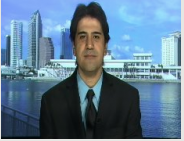The Islamic Republic declared that it is moving away from the US dollar for use in trades and that Tehran welcomes replacing dollar with other currencies.
According to Shana, Iran's official news agency, Safar-Ali Karamati, Deputy director of International Affairs for Marketing and Crude Oil Operation in the state-owned National Iranian Oil Co, stated that Iran's "top priority" is "to receive cash and oil demands in euro... Because of their [European Union] single monetary unit, European customers have no problem to pay for crude oil deals in euro". Two of the Iranian officials in the Foreign Ministry and the Ministry of Industries and Mines told me that Iran offers several other methods of payment, rather than the dollar, for its foreign trades, exports and imports.
What are the reasons behind such a significant monetary move? Why is Iran moving away from the US right after the nuclear deal was reached? And what are the implications of such actions?
Why Back Away from the Dollar?
For several reasons.
The Islamic Republic will make every effort possible to scuttle US national interests and foreign policy in the region, as well as to destroy US status as a global power.
First of all, Iranian leaders believe that one of the factors behind US global influence is the power of the petrodollar. The US dollar is the world's primary reserve currency representing approximately more than 60 percent of identified currency reserves. From Iran's point of view, reducing the use of the petrodollar will negatively affect US power.
Secondly, this is the right time for Iran to back away from the dollar. For one reason, Iran is not risking a war with the US as the White House just signed a nuclear deal with Iran and is not willing to jeopardize its crowning foreign policy "accomplishment". For another reason, at this moment, Russia, China, India and European countries are on Iran's side more than before, due to Iranian markets opening up.
Third, Iran is attempting to significantly reduce its dependency on the US dollar in case Washington or the International Atomic Energy Agency realizes that Iran is cheating on the nuclear agreement and that sanctions should be rolled back. That is why Rouhani was rushing to seal business deals across Europe and Asia by letting the other party use any currency rather than the dollar. For imports, Tehran will be also paying with other countries national currency; the Euro, the Chinese Yuan, the Indian rupee, or the Russian Ruble.
Finally, there are still several Iranian individuals and entities which are restricted by US financial sanctions so they can not use the American banking system. Backing away from the dollar will help these entities, or individuals, to conduct business with other nations using alternative banking systems and currencies.
But Why Does the US Keep Getting Iran Wrong?
The White House was jubilant over its "accomplishment" of enhancing diplomatic ties with the Islamic Republic through the nuclear deal. From the perspective of the Obama administration, Iran was definitely going to reciprocate the favors the US has granted Iran including the removal of the United Nations Security Council's financial sanctions against Tehran.
The problem is that the White House is treating the Islamic Republic as a typical Westphalian nation-state which prioritizes its national interests (economic and political) over anything else. That is why the US government is hopeful that giving Iran economic incentives would diminish some of the mistrust that Tehran exhibits towards Washington and start a new era.
But Iran's deep animosity towards the US will remain for several reasons. Iran's political establishment is a nexus between national interests and revolutionary principles. The White House needs to recognize that Iran's mistrust towards "the Great Satan", is the core of the government's socio-political and socio-economic establishment. Anti-Americanism is the quintessential element on which the revolutionary government bases its legitimacy. This is the underlying character of the system and it is beyond the control of a single individual, even the Supreme Leader, Ali Khamanei.
I studied Iran for over a decade and lived many years in Iran. I came to realize that as a result of Tehran's opposition to the US, the Iranian government truly and strongly believes that the US is trying to overthrow the Islamic Republic. No matter how many carrots the US gives the ruling clerics of Iran, Iranian leaders will still believe that there is a hidden agenda to dethrone them.
In addition, the Islamic republic will find it hard to survive if there is no powerful "enemy" to justify helping itself to the nation's wealth and natural resources, and to blame for all its mistakes.
It is simply inimical to the Islamic Republic's interests to make a strategic shift and abandon its efforts in scuttling US foreign policy and national interests, as long as the current Supreme Leader and senior cadre of the Islamic Revolutionary Guard Corps (IRGC) are in power.
----------------------
Dr. Majid Rafizadeh is an American political scientist, business advisor and the president of the International American Council on the Middle East. Harvard-educated, Rafizadeh serves on the advisory board of Harvard International Review. He is originally from Iran and Syria, recently moved to the US and became a US citizen, board member of several significant and influential international and governmental institutions, and he is native speaker of couple of languages including Arabic and Persian. He also speaks English and Dari, and can converse in French, Hebrew.
You can sign up for Dr. Rafizadeh's newsletter for the latest news and analyses on HERE.
You can also order his books on HERE.
You can learn more about Dr. Rafizadeh on HERE.
You can contact him at Dr.rafizadeh@post.harvard.edu or follow him at @Dr_Rafizadeh
This post first appeared on Al Arabiya.

